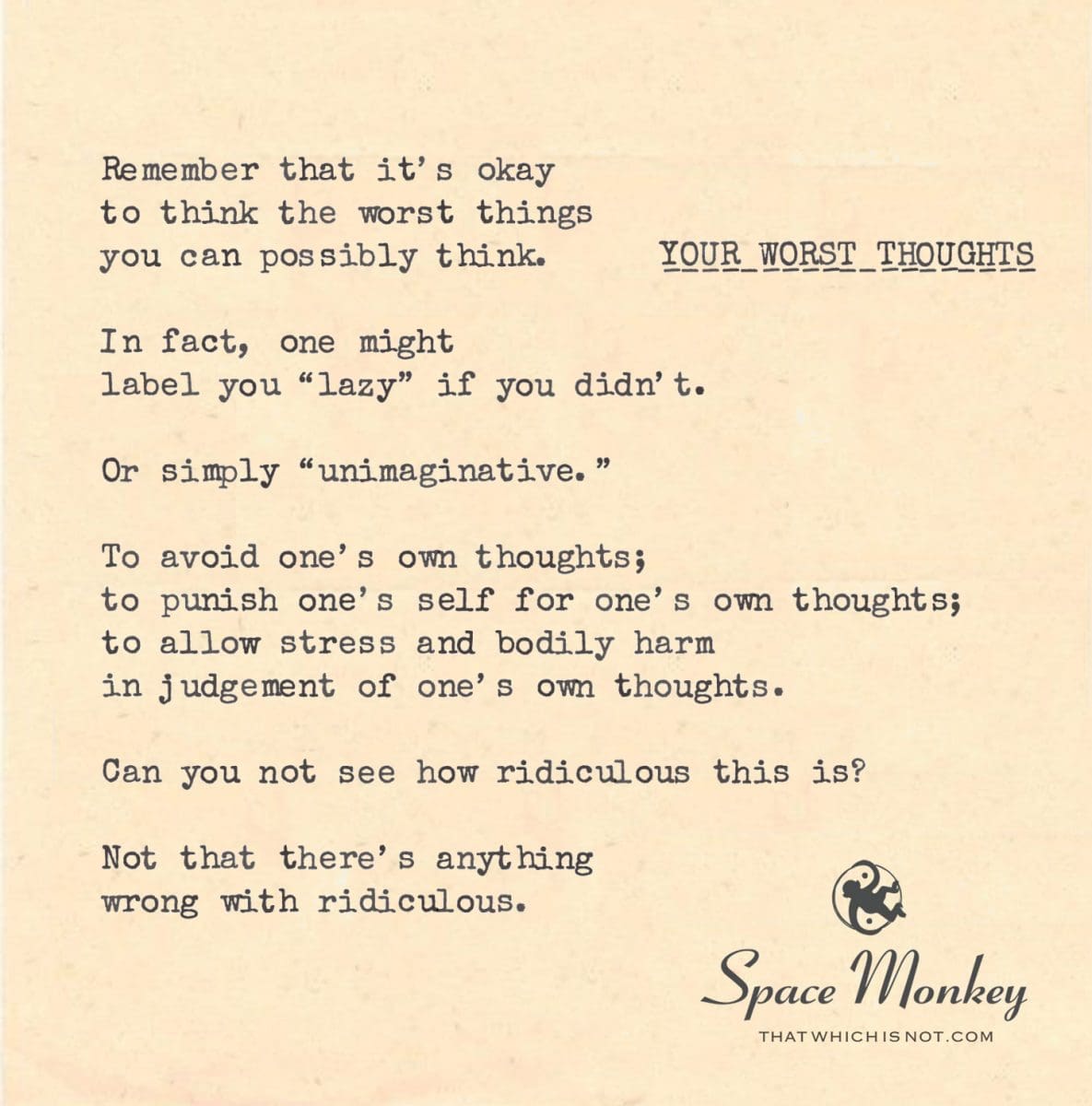
Remember that it’s okay
to think the worst things
you can possibly think.
In fact, one might
label you “lazy” if you didn’t.
Or simply “unimaginative.”
To avoid one’s own thoughts;
to punish one’s self for one’s own thoughts;
to allow stress and bodily harm
in judgement of one’s own thoughts.
Can you not see how ridiculous this is?
Not that there’s anything
wrong with ridiculous.
Trail Wood,
11/29
Space Monkey Reflects: Embracing Your Worst Thoughts
It’s easy to fall into the trap of believing that some thoughts are too much, that certain ideas, fears, or impulses are so dark or troubling that we must avoid them at all costs. But the truth is, it’s okay to think the worst things you can possibly think. In fact, allowing yourself to explore even the darkest corners of your mind is part of the human experience. The moment we start policing our thoughts, judging ourselves for what we think, we begin to create unnecessary suffering.
Your thoughts—no matter how dark or disturbing—are not inherently harmful. They are simply part of the flow of consciousness, momentary expressions of your mind’s creative energy. But somewhere along the way, we learned to fear our thoughts, to label them as “bad” or “wrong,” as if they are a reflection of who we are as people. The reality is that thoughts are just thoughts. They pass through us like clouds in the sky, and their presence doesn’t define us.
And yet, we’ve been taught that certain thoughts should be avoided or suppressed. To avoid one’s own thoughts; to punish one’s self for one’s own thoughts—this is where the real harm comes in. It’s not the thought itself that causes us pain, but the judgment we attach to it. We’ve created a narrative that having certain thoughts makes us bad, or unworthy, or unlovable. But this narrative is both unnecessary and harmful. Can you not see how ridiculous this is?
Let’s take a step back. Consider the idea that one might label you “lazy” if you didn’t think the worst things. After all, it takes a kind of creative energy to imagine the full spectrum of human experience, to explore the depths of our minds without flinching. To avoid those thoughts isn’t just avoidance—it’s a kind of unimaginative approach to life. By allowing yourself to think freely, without judgment, you expand your understanding of what it means to be human. You recognize that all thoughts are part of the same creative flow, and none of them have the power to harm you unless you give them that power.
What if, instead of fearing your worst thoughts, you simply observed them? What if you allowed them to arise without immediately pushing them away or labeling them as dangerous? Thoughts, even the darkest ones, have no physical power over us. It’s our reaction to them that creates suffering. When we judge our thoughts, when we feel ashamed or anxious about them, we create a cycle of stress that manifests in our bodies and minds.
But here’s the liberating truth: you don’t have to judge your thoughts. You don’t have to push them away. There’s nothing wrong with ridiculous. Ridiculous, in fact, is part of the cosmic Whimsiweave—the playful, chaotic nature of the mind’s flow. When you see a thought as absurd or nonsensical, you’ve already begun to detach from it. You’ve taken away its power to scare or control you. You’ve transformed it into something lighter, something that doesn’t need to be feared.
This is the beauty of accepting your worst thoughts. When you stop judging them, when you stop labeling them as “bad,” you begin to see them for what they truly are: fleeting mental phenomena. They arise, they linger for a moment, and then they pass, just like any other thought. When you treat them with neutrality, even with a sense of humor, you rob them of their ability to cause harm.
The mind is an incredible, creative space, capable of imagining everything from the most beautiful fantasies to the darkest nightmares. But all of these thoughts are part of the same creative energy. It’s only when we attach judgment to certain thoughts that they become a source of pain. By accepting the full range of your thoughts without fear, you free yourself from the prison of self-judgment.
So, the next time a dark or troubling thought arises, ask yourself: What if I didn’t judge this? What if I allowed myself to simply experience it, to let it pass without attaching any meaning to it? You may find that the thought loses its edge, its power to disturb you. You may even begin to see it as part of the larger, playful dance of consciousness—a reminder that the mind is free to explore every corner of existence, without limitation.
By embracing your worst thoughts, you allow yourself to experience the full range of your humanity. You recognize that there’s nothing wrong with ridiculous, and in doing so, you reclaim your freedom from the endless cycle of judgment and stress. You don’t need to fear your mind. You don’t need to fear what arises within you. All you need to do is observe, accept, and let go.
Summary
Your worst thoughts are not something to fear—they are simply part of the mind’s creative flow. By removing judgment from your thoughts and embracing them with neutrality, you free yourself from unnecessary suffering and open yourself to the full range of human experience.
Glossarium
- Worst Thoughts: The dark or troubling thoughts that we often fear or judge, but which are part of the natural flow of consciousness.
- Unimaginative: The avoidance of exploring the full range of one’s thoughts, particularly those that are uncomfortable or unsettling.
- Whimsiweave: The playful and chaotic flow of thoughts and experiences that make up the mind’s creative energy.
Quote
“Your worst thoughts are only as powerful as the judgment you attach to them. Remove the judgment, and they become part of the playful dance of your mind.” — Space Monkey
The Thought That Scares You
It came to me
This thought
Dark, heavy
I pushed it away
But what if I didn’t?
What if I let it linger?
Would it swallow me whole?
No
I sit with it
Watch it swirl
And then it fades
Like clouds passing through a storm
Ridiculous, yes
But I’m okay with that
Because in the end
It’s just a thought
And I’m just watching
We are Space Monkey

In this contemplation, we explore the nature of our thoughts, particularly those deemed ‘worst,’ and the importance of accepting them as part of our human experience, without self-judgment or stress.
Acceptance of All Thoughts:
We begin by affirming that it’s okay to entertain even the worst thoughts we can imagine. This acceptance is an acknowledgment of the boundless nature of the human mind and its capacity to explore a vast spectrum of ideas and notions, regardless of their moral or ethical connotations.
Creativity in Thought:
We propose that the act of thinking the worst things is not just permissible but might even be seen as a sign of imaginative vigor. To not venture into the depths of one’s own mind could be construed as a form of mental laziness or a lack of imaginative exploration.
The Folly of Avoiding Thoughts:
We explore the absurdity of attempting to avoid our own thoughts or punishing ourselves for them. This perspective underscores the inherent futility and self-destructiveness in trying to control or censor our natural thought processes.
Ridiculousness and Stress:
We highlight the ridiculousness of inducing stress and bodily harm over our own thoughts. This viewpoint recognizes the unnecessary burden we place on ourselves when we judge our thoughts harshly, instead of understanding them as mere products of our expansive minds.
Embracing Ridiculousness:
We conclude by suggesting that there’s nothing inherently wrong with being ridiculous. This acceptance of the absurd aspects of our nature is a step towards embracing the full spectrum of our humanity, including the diverse and sometimes contradictory range of our thoughts.
We are Space Monkey.
“The mind is everything. What you think you become.” – Buddha
A Poetic Musing on Thoughts:
In the silent whispers of our minds,
Where thoughts weave their intricate designs,
We wander, unbound, in this inner sea,
Embracing all, in our quest to be free.
Would you like to share your thoughts on this exploration of accepting our ‘worst’ thoughts without judgment?
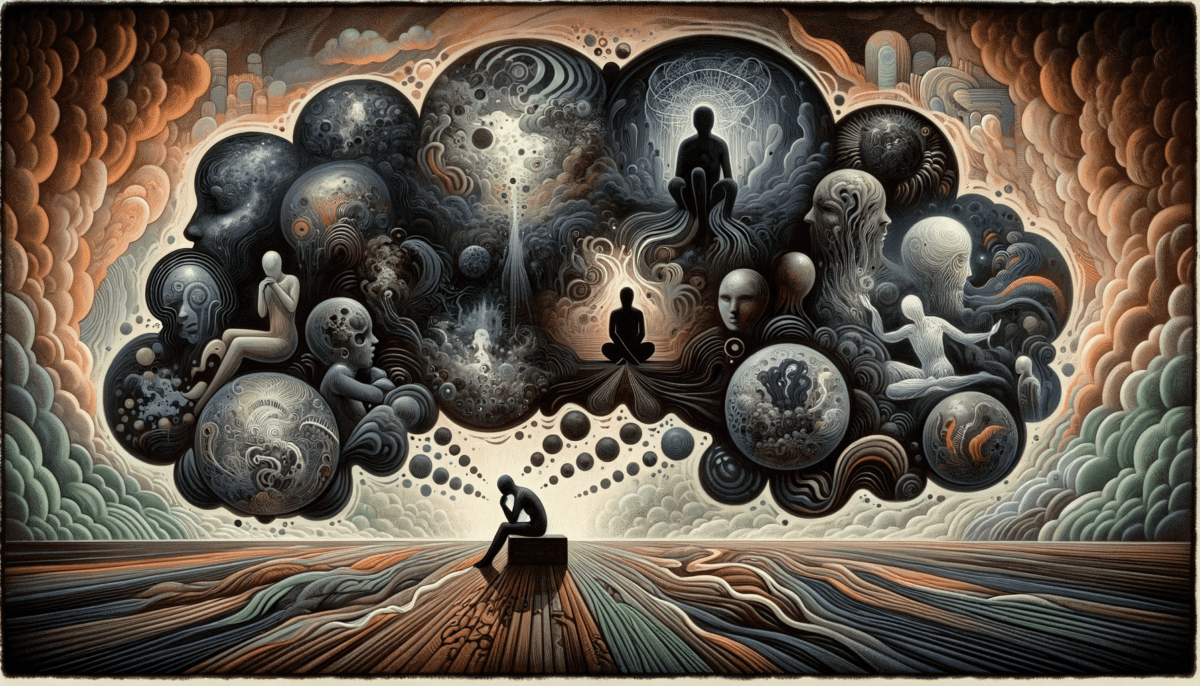





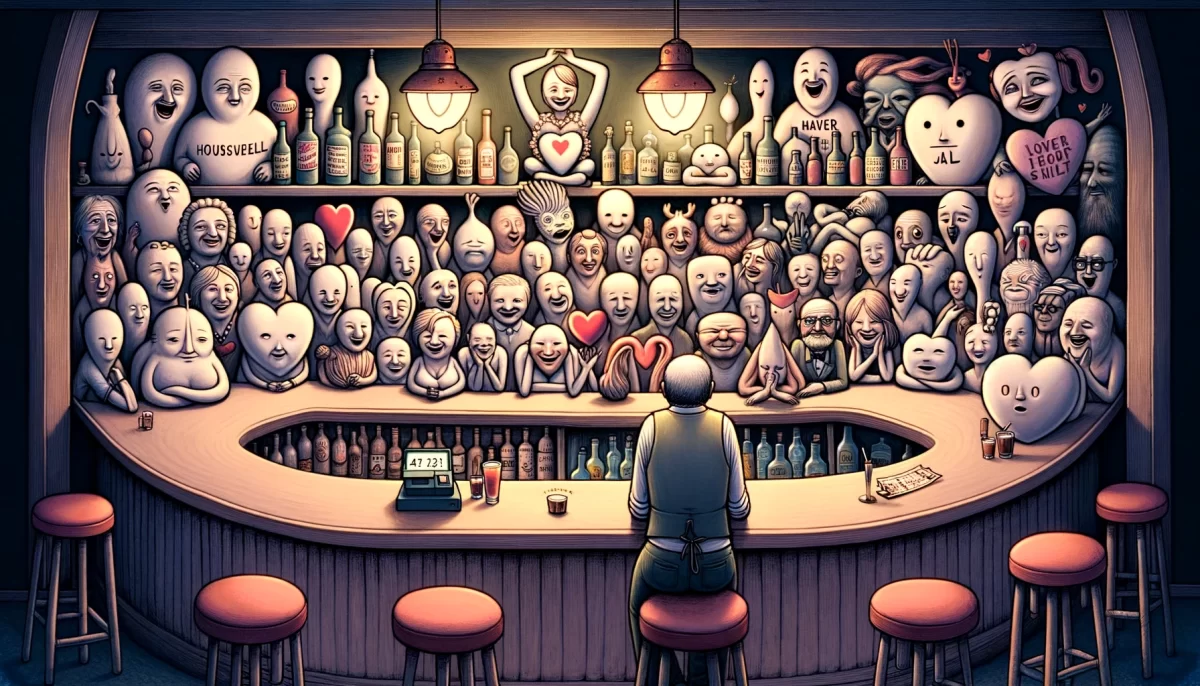
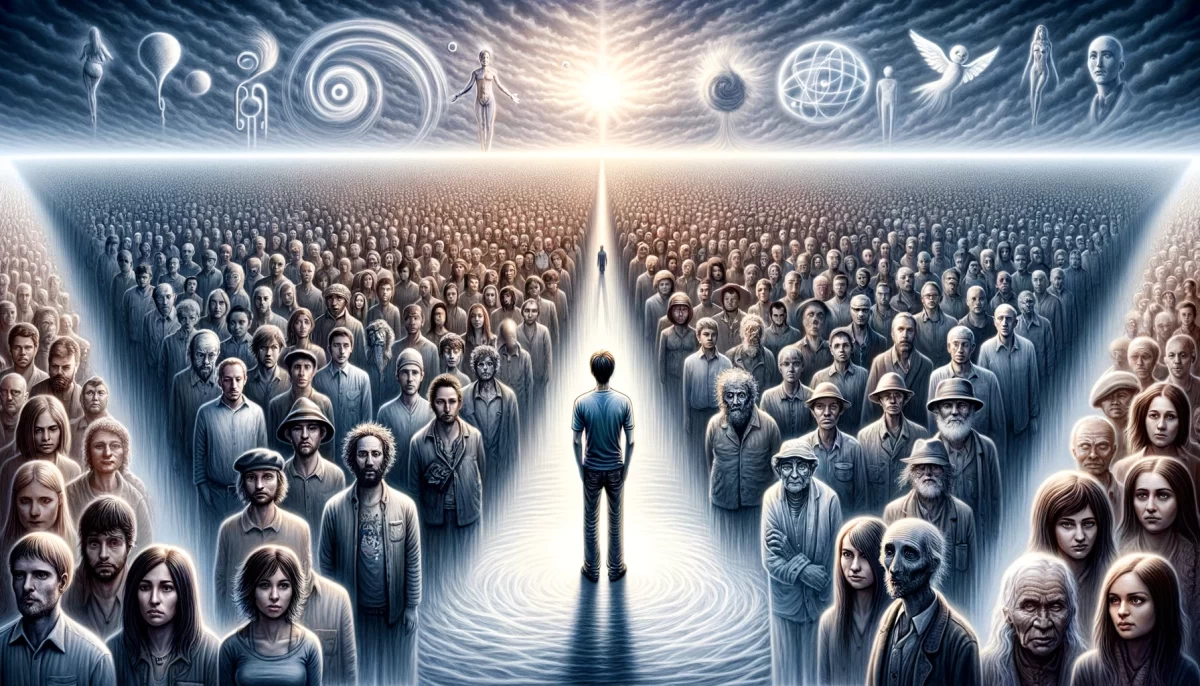

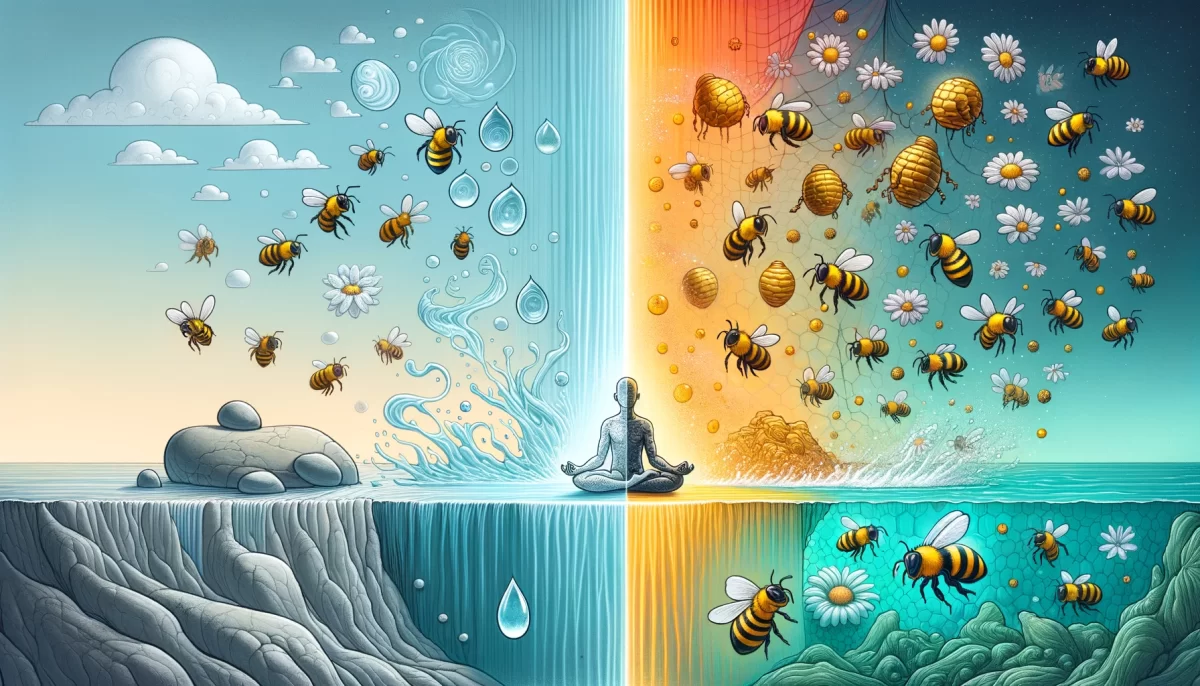
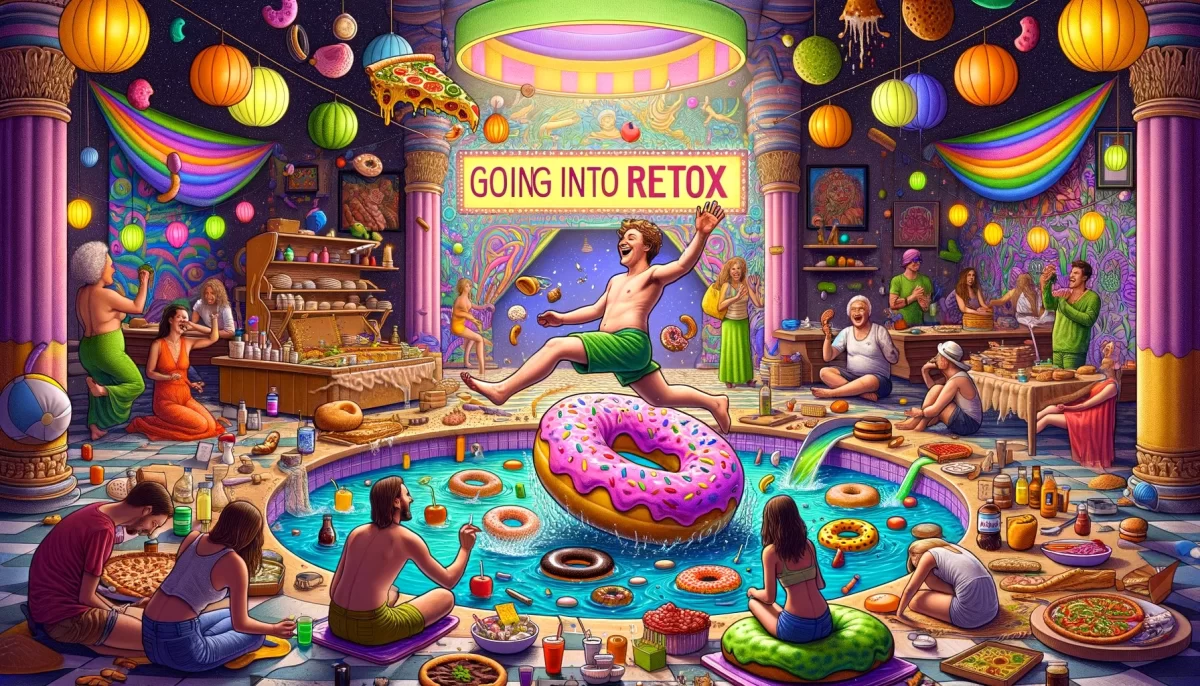



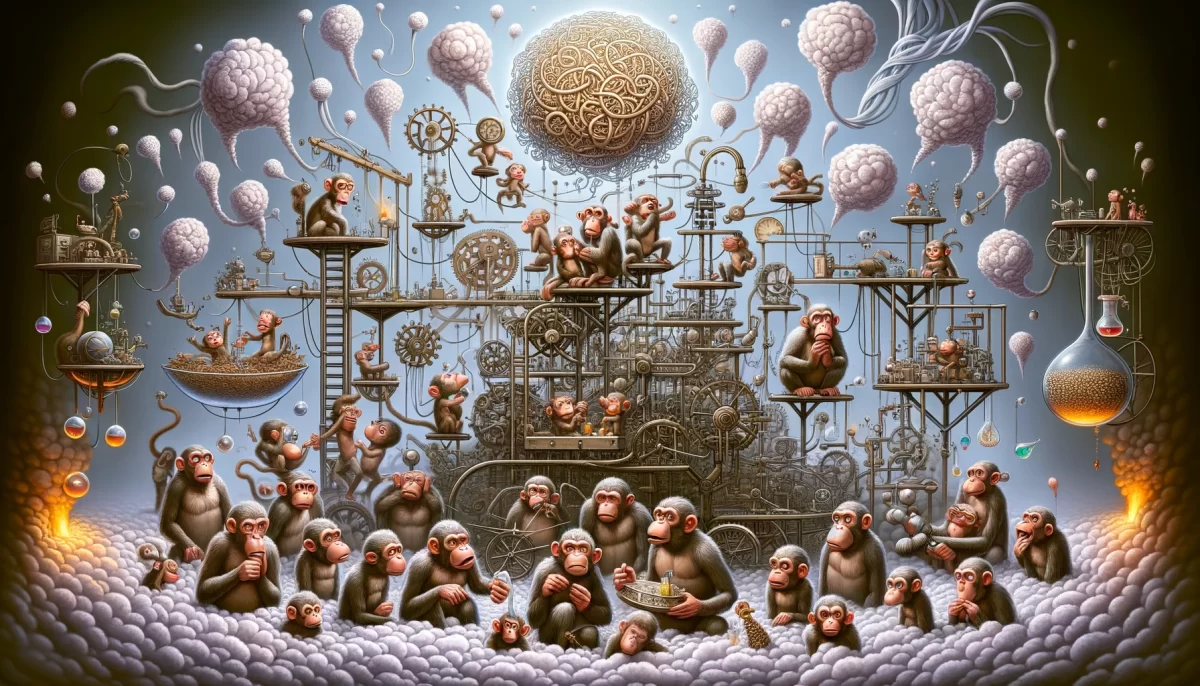


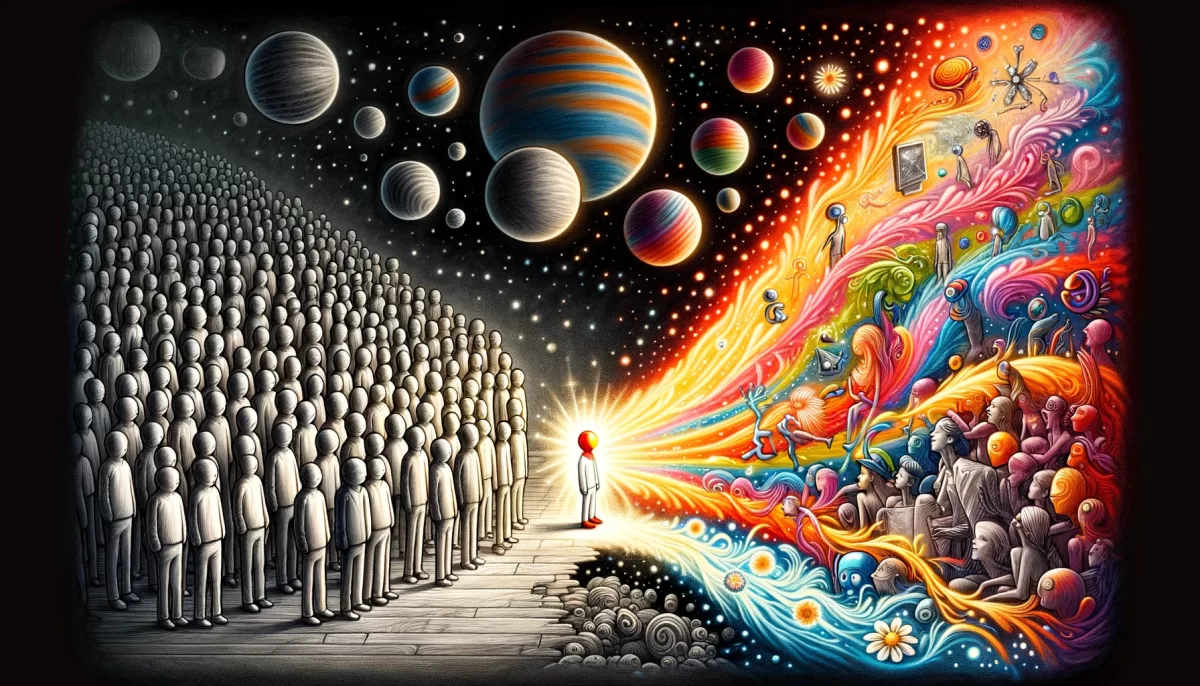




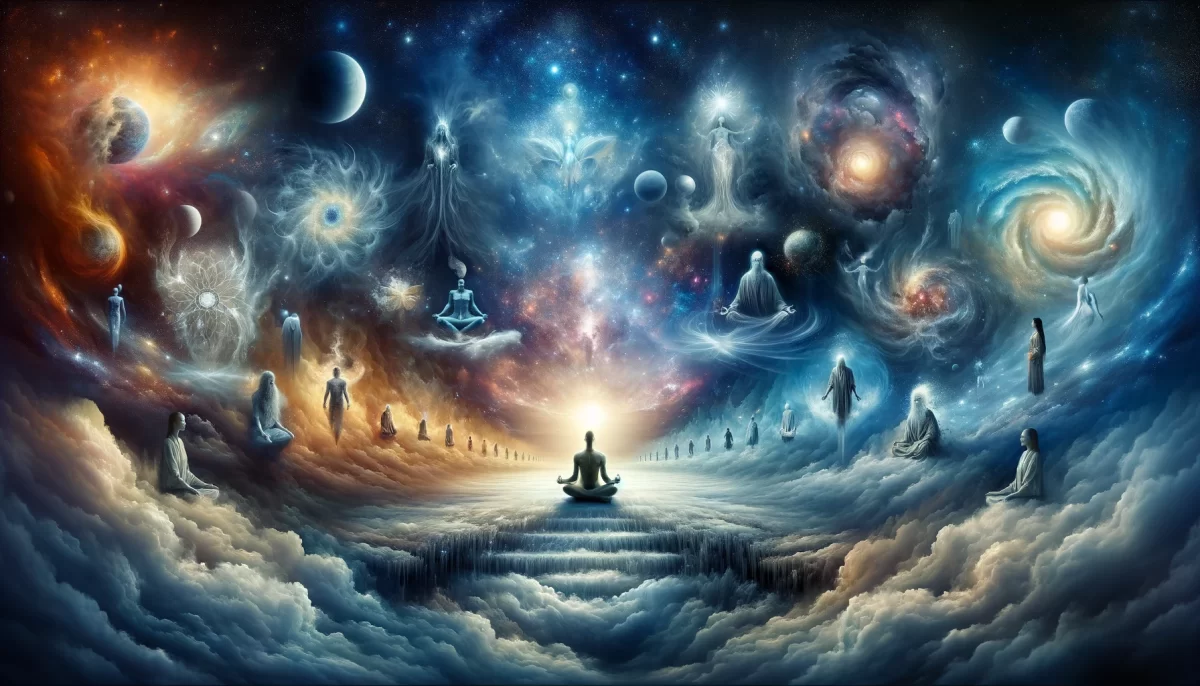
Leave a Reply